The Massive Harrods Catalogue from 1912 Get Digitized: Before Amazon, Harrods Offered “Everything for Everyone, Everywhere”
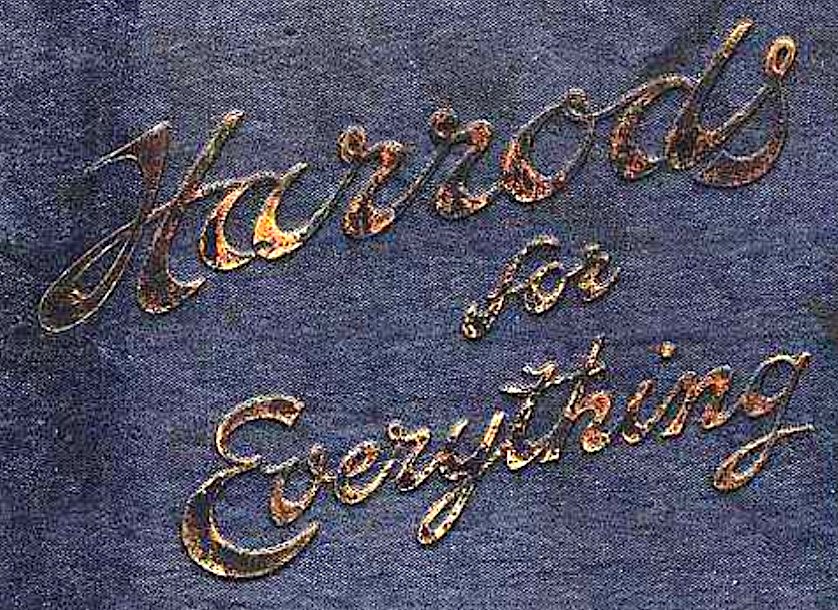
A couple years ago, obituaries began appearing online for the department store Sears after the 130-year-old American company announced its bankruptcy. Many of the tributes focused on Sears, Roebuck & Co’s catalog, and for good reason. Their massive mail-order business, the Amazon of its day, transformed the U.S., selling guitars to Delta blues and rock and roll musicians and shipping thousands of build-it-yourself houses to rural homesteaders and suburbanites. The sheer reach and scope of the Sears’ catalog can seem overwhelming…. That is, until we turn to the 1912 Harrods for Everything.
This 1,525-page catalogue from London’s world-famous department store, Harrods, does seem to mean everything, with over 15,000 products available for purchase at the store’s location, by mail, or by phone (“anything, at any time, day or night”).
You can see the enormous monument to commerce for yourself at Project Gutenberg. The catalogue took 13 years to scan. “Some idea of the vast quantity of items that Harrods stocked or had available can be taken from the general index,” notes Eric Hutton, one of the volunteer editors on the project, “which runs for 68 pages, five columns to a page.”
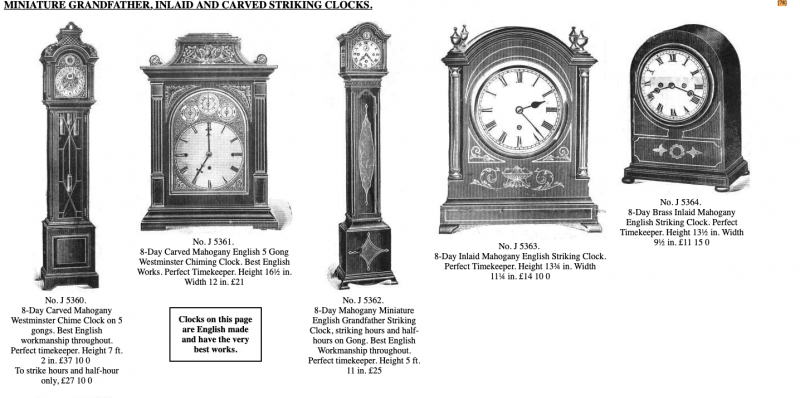
Men and women could order custom-tailored clothing, fine jewelry, clocks, watches, furniture. Naturalists and hunters could have their trophies dressed and mounted. Policemen and, well, anyone, could order pistols, “knuckle dusters,” and handcuffs. “You could also hire bands or musicians, plus tents or marquees for outdoor gatherings. You could rent steam, electric, or petrol launches to go down a river, or, if you set your sights further afield, there were ‘exploring, scientific and shooting expeditions… completely equipped and provisioned for any part of the world"... perhaps the Edwardian version of the Sears House.

A MetaFilter user points out how much globalization and empire play into the marketing. These are “not just luxury goods but commodities. I noticed wheat could come from at least three continents…. Over and over it explains how Harrods will outfit anyone abroad who needs a social or military or exploratory uniform: telegraph Harrods for shoe buckles appropriate to your stations.” Harrods also repeatedly emphasizes they will ship anywhere in the world. Colonial officials in India or Uganda could live like kings.
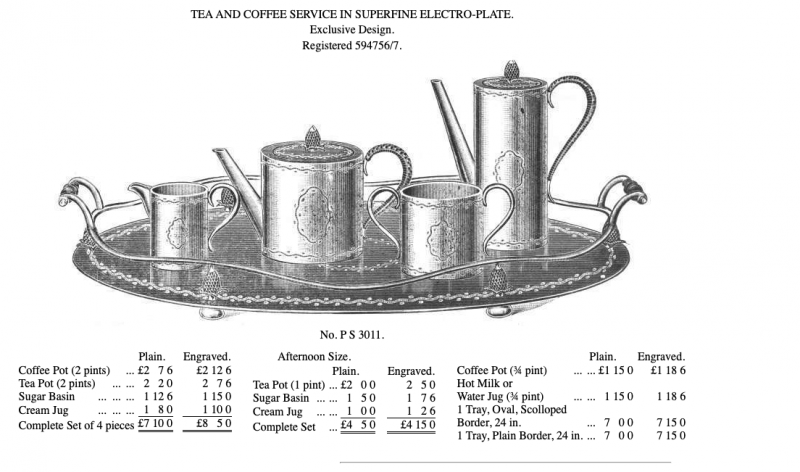
This was also a time when miracle cures and various unscientific treatments abounded. “You could buy things like chloroform or throat pastilles in dozens of varieties,” notes Hutton, “even those containing cocaine!”
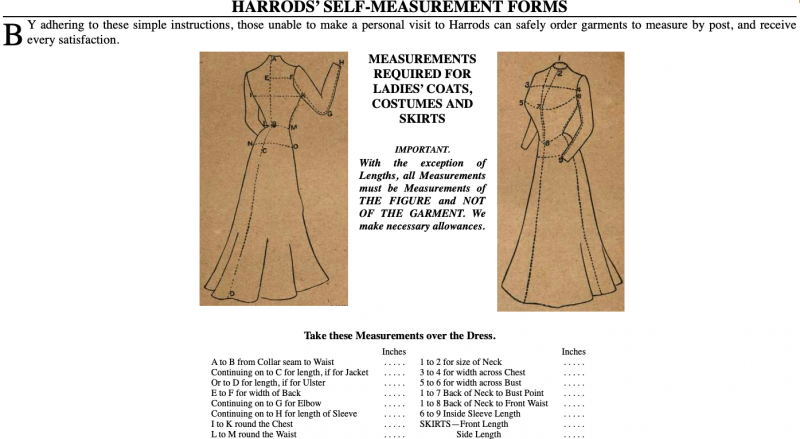
A few of the commodities featured in Harrods for Everything are a lot harder to come by these days. Some of them, like the pages of guns, are easy to get in the US but not so readily available in the UK and many of its former colonies.

But aside from certain obvious historical differences, the catalogue isn’t that much different from the pages of online retailers who will also sell you almost anything, at any time of day, and ship it to you anywhere in the world. What we thought of as unprecedented innovation was commonplace in the days of Queen Victoria, only shipping took a lot longer. Harrods’ Latin motto even sounds particularly modern, in English: Omnia Omnibus Ubique, or “everything for everyone, everywhere.” Yet much, too, has changed. Harrods, outfitter of the British Empire, is now owned by the state of Qatar.
See the fully scanned 1,525-page Harrods for Everything catalogue at Project Gutenberg.
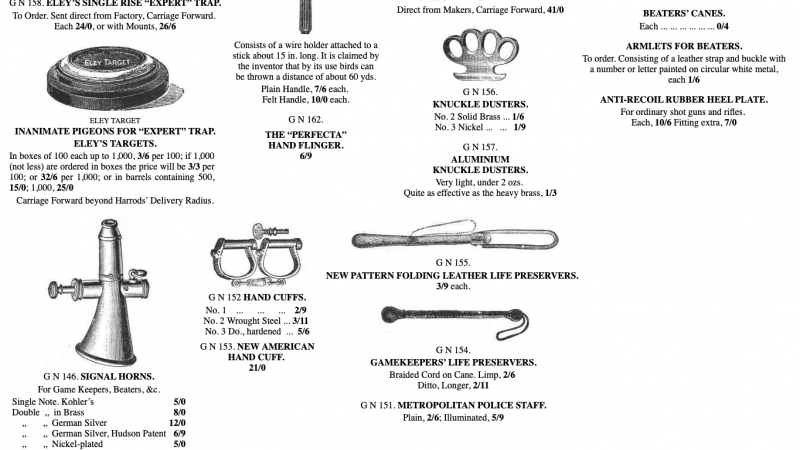
Related Content:
Sears Sold 75,000 DIY Mail Order Homes Between 1908 and 1939, and Transformed American Life
What It Cost to Shop at the Grocery Store in 1836, and What Goods You Could Buy
Josh Jones is a writer and musician based in Durham, NC. Follow him at @jdmagness
The Massive Harrods Catalogue from 1912 Get Digitized: Before Amazon, Harrods Offered “Everything for Everyone, Everywhere” is a post from: Open Culture. Follow us on Facebook, Twitter, and Google Plus, or get our Daily Email. And don't miss our big collections of Free Online Courses, Free Online Movies, Free eBooks, Free Audio Books, Free Foreign Language Lessons, and MOOCs.
from Open Culture https://ift.tt/3gu4A4N
via Ilumina
Comments
Post a Comment